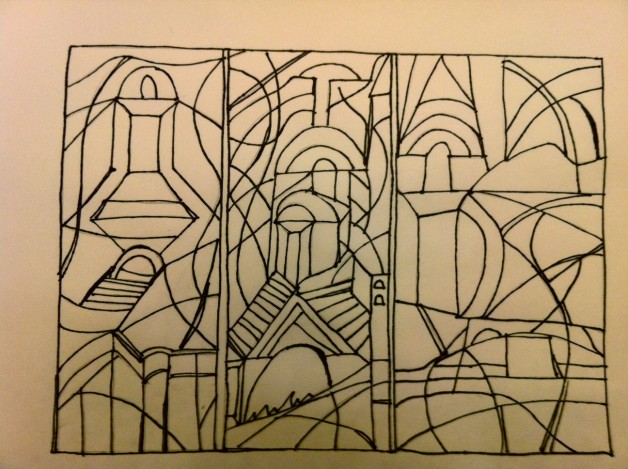
Recently, I read aloud my poem “What Happens Next” to….an audience! The poem was published in the latest issue of The Tule Review, and the poets who appeared in that review were invited to read their work aloud. It was a fun evening, and it was wonderful to hear the poems read by their authors.
I was joking around with my poet friends later about the form of “American Sonnet” which is like a regular sonnet without any rhymes or rhyming couplets or couplets. American Sonnet is barely a sonnet only because it adheres to the idea of maintaining 14 lines. Of course, “What Happens Next” missed being an American Sonnet by just two lines. It’s just a poem, with no discernable “form.”
And it has taken me a while to understand why this poem actually works, aside from the twist of words at the very end. It is a poem that does not actually answer the question posed in its title. It is a poem that leaves its reader to fill in the gaps with his or her imagination.
Here is the poem:
What Happens Next
“I know sirens are especially bad news when they come for you.” – Terrance Hayes
Everybody, and I mean everybody on the interstate
sitting through the aftermath of that forty-car pileup, replete
with helicopters and jaws of life, candy-red fire
engines and highway patrol clad in ash-colored uniforms
and giant holstered guns, heard them. At first, it sounded like bees
swarming just before the mind alerts you that bees hum in groups
when gunning for you, then it switched to a children’s choir,
well, a choir from an all-girls school, girls who were still at a distance.
As it got closer, it seemed like angels but not the kind we think
of at Christmas; and closer still, the temperature skied high,
the ground trembled and even the trees on the other side of the sound
barriers swayed to this music; everyone got out of their cars
and the women looked up and saw feathered bodies looming
as the men all dropped to their knees and screamed. I thought at first
they were the furies but saw their childish faces, beauty
and terror, and knew they were the sirens coming for us all.
This realization has made me remember my poetry classes in graduate school, and how my teachers, especially the late poet Lucille Clifton, were frequently talking about how it is a gift to the reader and almost always preferable to leave a poem or a sentence, or the end of a paragraph or the end of a section, with an image rather than a fully formed and executed thought.
To leave a poem with an image forces the reader to cull the material he or she has just read and form a conclusion and a thought independently. In “What Happens Next” we actually don’t know what happens next, but happily, we can only imagine.
Devi Laskar is a founding member of the Book Writing World. She holds an MFA in creative writing from Columbia University, an M.A. in South Asian Studies from the University of Illinois, is a rabid Tar Heel basketball fan and is working on a couple of novels.

Hi Devi— I love your poems, just love them. And anything Greek is always close to my heart. Those sirens and harpies and medusas all still seem to populate our imaginations and our conversation over here at our house. I was digging through some old files today and came across this poem that my daughter wrote when she was 15. She had just read a fabulous, back-talking, jealous sister’s angle on the rape of Leda (Leda’s Sister and the Geese, by Katharyn Howd Machan), and it gave her the idea of the alternate perspective, the untold angle. So when she read “Ulysses,” this is what she came up with. I thought I might offer it to you, since you share so many of your poems. (And aren’t I generous offering up something that isn’t even mine!!)
Penelope 11/21/07
Perhaps you think I have waited, for you
In a cushioned chair, my feet propped
On an embroidered footstool.
Nay, I have had naught
But clever foes’ daggers at my back
Who design to sever my resolve: to stand fast
Beside the windblown crags, for you.
The salted sea has been changeless for me
Day after day, while you
Have drunken to battle-lust and glory
On the windy plains of a distant land.
Now you say you are but a name,
A blade lacking burnishing.
I have stood fast for your name, Ulysses,
I, your aged wife, have stood beside
This grey shore, with only a name
For twenty years.
In your westward glancing heart I glimpse
That heart which hath moved heaven and earth:
Keen swords, flashing fire, falling stars
Beyond your drenched mast–
I knew you then, I know you now.
The yearning gust that blew you in
Will blow you out again.
There lies the port; the vessel puffs her sail,
So go;
And if you seek beyond the arch
Of your desires, you will
Forever sail for me
Along the froth-edged waves
Of the sunset sea.
Devi – Your poem brought tears to my eyes. It moved me and the image will stay with me and maybe haunt me a little.